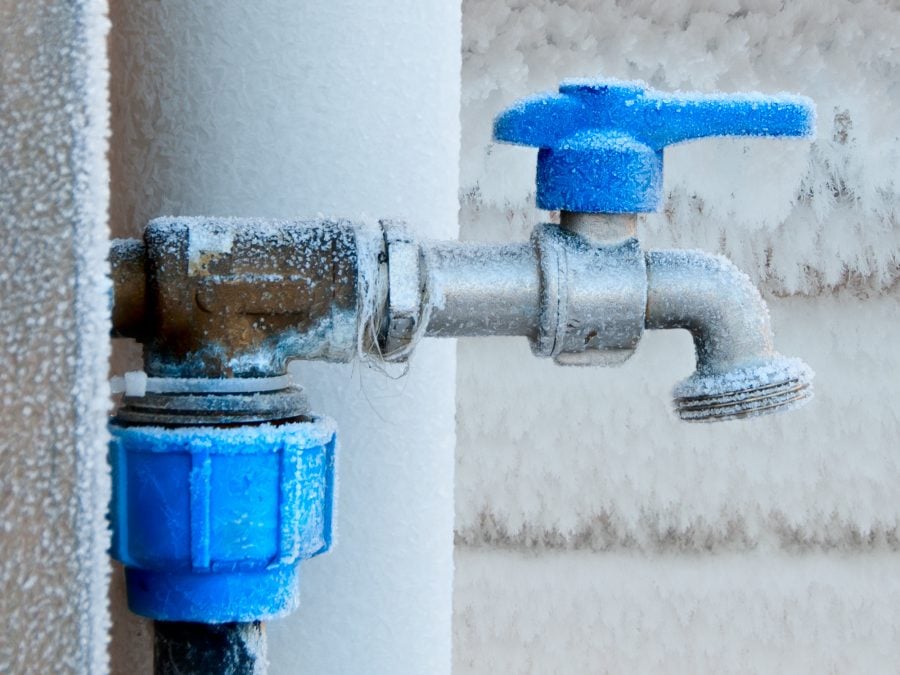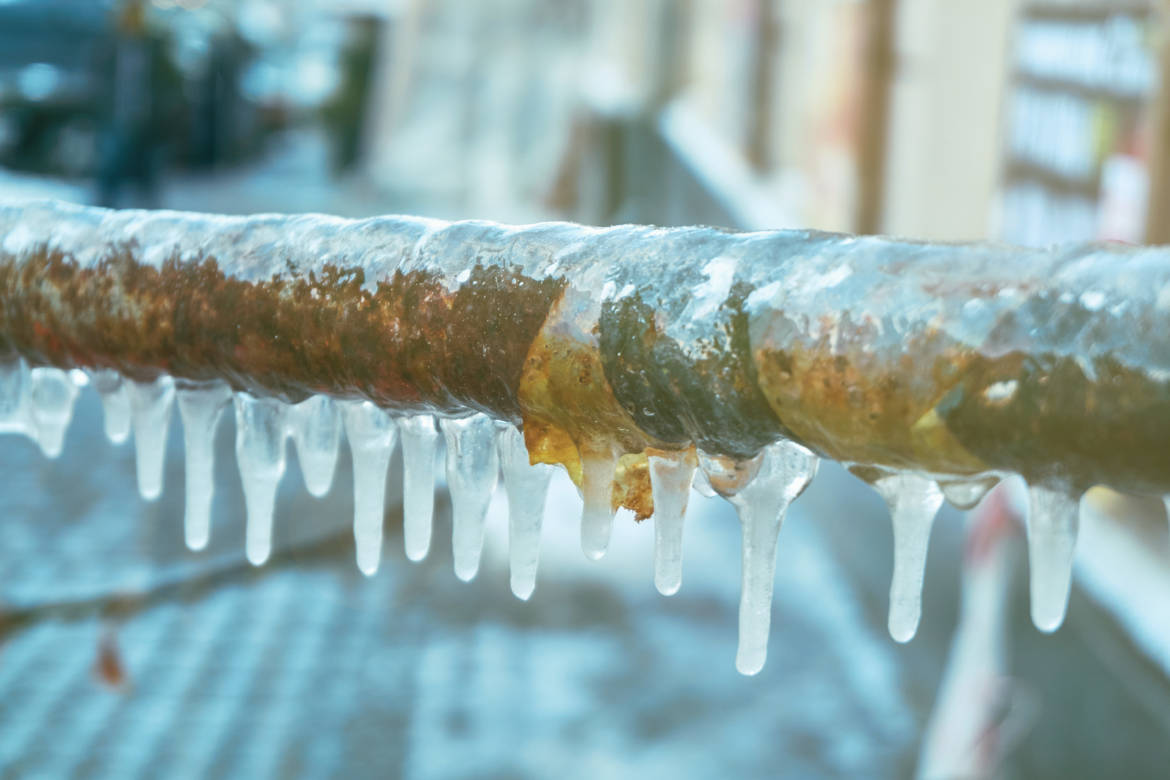We have uncovered this great article on Winter Plumbing Precautions: Preventing Frozen Pipes directly below on the net and decided it made sense to relate it with you on this site.

Winter can damage your pipes, specifically by freezing pipelines. Below's just how to stop it from taking place and what to do if it does.
Intro
As temperature levels drop, the threat of icy pipelines rises, possibly resulting in expensive fixings and water damages. Comprehending how to prevent icy pipes is crucial for home owners in cold climates.
Prevention Tips
Insulating vulnerable pipes
Wrap pipelines in insulation sleeves or utilize warm tape to shield them from freezing temperature levels. Concentrate on pipes in unheated or external locations of the home.
Home heating strategies
Maintain interior spaces sufficiently warmed, particularly areas with plumbing. Open up cabinet doors to permit warm air to distribute around pipes under sinks.
How to determine frozen pipelines
Seek lowered water flow from taps, unusual smells or noises from pipes, and visible frost on exposed pipes.
Long-Term Solutions
Structural modifications
Take into consideration rerouting pipes far from outside walls or unheated areas. Include added insulation to attics, cellars, and crawl spaces.
Upgrading insulation
Purchase high-quality insulation for pipelines, attic rooms, and walls. Appropriate insulation aids maintain consistent temperatures and minimizes the threat of icy pipes.
Protecting Outdoor Pipes
Garden pipes and outside faucets
Disconnect and drain garden hoses prior to winter months. Install frost-proof faucets or cover outside taps with protected caps.
Comprehending Icy Pipelines
What causes pipes to freeze?
Pipelines ice up when revealed to temperatures below 32 ° F (0 ° C) for expanded durations. As water inside the pipelines ices up, it broadens, taxing the pipe wall surfaces and potentially triggering them to break.
Dangers and damages
Icy pipes can result in supply of water disruptions, property damages, and expensive repairs. Burst pipes can flood homes and trigger considerable architectural damage.
Indicators of Frozen Piping
Recognizing frozen pipelines early can prevent them from rupturing.
What to Do If Your Pipes Freeze
Immediate actions to take
If you believe icy pipes, maintain taps open up to ease stress as the ice thaws. Use a hairdryer or towels soaked in warm water to thaw pipes gradually.
Final thought
Protecting against icy pipes requires positive measures and quick actions. By comprehending the causes, indications, and preventive measures, homeowners can safeguard their pipes throughout cold weather.
Helpful Tips to Prevent Frozen Pipes this Winter
UNDERSTANDING THE BASICS: WHY PIPES FREEZE AND WHY IT’S A PROBLEM
Water freezing inside pipes is common during the winter months, but understanding why pipes freeze, and the potential problems it can cause is crucial in preventing such incidents. This section will delve into the basics of why pipes freeze and the associated problems that may arise.
THE SCIENCE BEHIND FROZEN PIPES
When water reaches freezing temperatures, it undergoes a physical transformation and solidifies into ice. This expansion of water as it freezes is the primary reason pipes can burst. As the water inside the pipe freezes, it expands, creating immense pressure on the walls. If the pressure becomes too great, the pipe can crack or rupture, leading to leaks and water damage.
FACTORS THAT CONTRIBUTE TO PIPE FREEZING
Low Temperatures: Extremely cold weather, especially below freezing, increases the risk of pipes freezing. Uninsulated or Poorly Insulated Pipes: Pipes located in unheated areas, such as basements, crawl spaces, or attics, are more prone to freezing. Insufficient insulation or lack of insulation altogether exacerbates the problem. Exterior Wall Exposure: Pipes running along exterior walls are susceptible to freezing as they encounter colder temperatures outside. Lack of Heating or Temperature Regulation: Inadequate heating or inconsistent temperature control in your home can contribute to frozen pipes. PROBLEMS CAUSED BY FROZEN PIPES
- Pipe Bursting: As mentioned earlier, the expansion of water as it freezes can cause pipes to burst, resulting in significant water damage.
- Water Damage: When pipes burst, it can lead to flooding and water damage to your property, including walls, ceilings, flooring, and personal belongings.
- Structural Damage: Prolonged exposure to water from burst pipes can compromise the structural integrity of your home, leading to costly repairs.
- Mold and Mildew Growth: Excess moisture from water damage can create a favorable environment for mold and mildew growth, posing health risks to occupants.
- Disrupted Water Supply: Frozen pipes can also result in a complete or partial loss of water supply until the issue is resolved.
WHY CERTAIN PIPES ARE MORE PRONE TO FREEZING
- Location: Pipes located in unheated or poorly insulated areas, such as basements, crawl spaces, attics, or exterior walls, are at higher risk of freezing.
- Exterior Pipes: Outdoor pipes, such as those used for irrigation or exposed plumbing, are particularly vulnerable to freezing as they are directly exposed to the elements.
- Supply Lines: Pipes that carry water from the main water supply into your home, including the main water line, are critical to protect as freezing in these lines can affect your entire plumbing system.
- Underground Pipes: Pipes buried underground, such as those connected to sprinkler systems or outdoor faucets, can be susceptible to freezing if not properly insulated.
https://busybusy.com/blog/helpful-tips-to-prevent-frozen-pipes-this-winter/

I'm certainly very intrigued by How to Prevent Your Pipes From Freezing and I'm hoping you appreciated the new page. Do you know about somebody else who is fascinated about the topic? Feel free to promote it. Thanks a lot for taking the time to read it.
Book 24/7